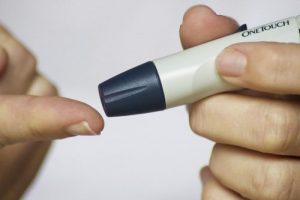- Home
- Editorial
- News
- Practice Guidelines
- Anesthesiology Guidelines
- Cancer Guidelines
- Cardiac Sciences Guidelines
- Critical Care Guidelines
- Dentistry Guidelines
- Dermatology Guidelines
- Diabetes and Endo Guidelines
- Diagnostics Guidelines
- ENT Guidelines
- Featured Practice Guidelines
- Gastroenterology Guidelines
- Geriatrics Guidelines
- Medicine Guidelines
- Nephrology Guidelines
- Neurosciences Guidelines
- Obs and Gynae Guidelines
- Ophthalmology Guidelines
- Orthopaedics Guidelines
- Paediatrics Guidelines
- Psychiatry Guidelines
- Pulmonology Guidelines
- Radiology Guidelines
- Surgery Guidelines
- Urology Guidelines
Omega-6 could lower type 2 diabetes risk by 35 percent

The risk of developing type 2 diabetes could be significantly reduced by eating a diet rich in omega-6 polyunsaturated fats, a new study suggests.
These findings, published in The Lancet Diabetes & Endocrinology, shed new light on the potential health benefits of omega-6, which is found in bean and seed oils such as soybean and sunflower oils and in nuts, and support clinical recommendations to increase dietary intake of omega-6 rich foods.
Lead author Dr Jason Wu, of The George Institute for Global Health in Sydney, said: "Our findings suggest that a simple change in diet might protect people from developing type 2 diabetes which has reached alarming levels around the world."
"This is striking evidence," said senior author and Professor Dariush Mozaffarian, of the Friedman School of Nutrition Science and Policy at Tufts University in Massachusetts. "The people involved in the study were generally healthy and were not given specific guidance on what to eat. Yet those who had the highest levels of blood omega-6 markers had a much lower chance of developing type 2 diabetes."
Recent studies have raised concerns that omega-6 may have negative health effects, such as inflammation leading to the increased risk of chronic diseases.
Yet, when the global collaboration led by The George Institute explored these concerns in studies from around the world, they found that individuals who had the highest blood level of linoleic acid, the major omega-6 fat, were 35 per cent less likely to develop type 2 diabetes in the future than those who had the least amount.
Researchers analysed data from 20 studies involving 39,740 adults from 10 countries, in whom 4,347 new cases of diabetes occurred over time. These included adults with a wide range of ages and without any diagnosis of type 2 diabetes at the onset of the studies, when they were laboratory tested for levels of two key omega-6 markers - linoleic acid and arachidonic acid. Linoleic acid was associated with lower risk, while levels of arachidonic acid were not significantly associated with either higher or lower risk of diabetes.
"Some scientists have theorized that omega-6 is harmful to health," said Dr Wu. "But based on this large global study, we have demonstrated little evidence for harms, and indeed found that the major omega-6 fat is linked to lower risk of type 2 diabetes."
Linoleic acid is not formed in the body and can only be obtained from the diet. US dietary guidelines recommend between 5-10 per cent of energy should be derived from polyunsaturated fats. "Based on concerns for harm, some countries recommend even lower intakes," said Dr Wu. "Our results suggest that eating foods rich in linoleic acid may lower risk of type 2 diabetes."
This research combined many large observational studies, and therefore it could not directly determine the effect of raising omega-6 fat levels in a trial. The study's strengths include the use of objective blood or tissue biomarkers of fatty acids, that avoid memory errors associated with people's own impressions of their diet; that researchers developed a pre-specified standardized analysis protocol, which increases consistency of the findings; and that data from many countries around the world was included, enhancing the relevance to different populations.

Disclaimer: This site is primarily intended for healthcare professionals. Any content/information on this website does not replace the advice of medical and/or health professionals and should not be construed as medical/diagnostic advice/endorsement or prescription. Use of this site is subject to our terms of use, privacy policy, advertisement policy. © 2020 Minerva Medical Treatment Pvt Ltd